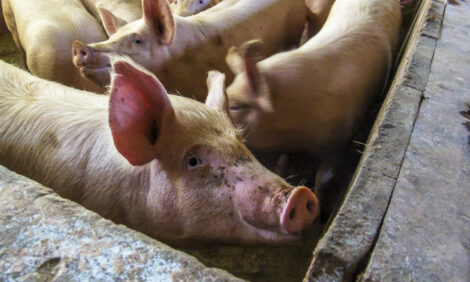



Will Brussels Try to Fudge Origin-of-pork Labelling?
EU - Although country of origin labelling for fresh pork will be mandatory from December 2014, Brussels has yet to indicate which labelling model it favours — Simple, Intermediate or Premium.A lot will depend on its impact assessment, which considers the costs and administrative burden that each model will impose on farmers, food companies, retailers and consumers.
Option 1. SIMPLE
The Simple model would require meat from an animal reared in the European Union to be labelled "Origin EU" and imported meats and meat from imported animals to be labelled "Origin: non-EU".
Option 2. INTERMEDIATE
The Intermediate model would require the following information to be given on the label:
- Member country (or third country) where the animal was reared and slaughtered (minimum period to be fixed).
- Where a minimum rearing period is not met, "Origin: EU" or "Origin: non-EU" would apply.
Option 3. PREMIUM
The Premium mandatory labelling model would be similar to mandatory beef labelling, which is already in force.
Meat from an animal born, reared or slaughtered in more than one country would have to be labelled with the following information:
- Member country (or third country) where the animal was born.
- Member country (or third country) where the animal was reared.
- Member country (or third country) where the animal was slaughtered.
Meat from an animal born, reared and slaughtered in one country would be labelled simply with the single country of origin.
A year ago, Brussels may have been persuaded by food company lobbyists to recommend the Simple model to ministers.
But as a result of Horsegate, and other food scandals around the world, the European Commission now recognises that consumers are increasingly concerned about where their meat comes from.
One recent study found that 48 per cent of European Union consumers look for country of origin information when buying fresh meat or meat products.
Brussels is required to come forward with recommendations for ministers and to adopt the necessary implementing acts by December this year, in time for inclusion in its new labelling regulation (No. 1169/2011) which comes into force in December 2014.

For their part, many British pig farmers will be hoping Brussels chooses the Premium labelling model.
But it is likely there will be pressure on Brussels from producers in Denmark and the Netherlands, who export considerable numbers of young pigs, to choose the Simple or Intermediate model.
British pork and pork products earn a premium of around ten per cent on the home market, a commonplace differential when a country is a net importer of a food product.
British pig farmers are weary of food companies, retailers and caterers cashing in on this differential by passing-off imported product as British — sometimes with considerable skill and agility.
Even in blatant cases of misleading labelling, wrong-doers tend to escape with a telling-off, because Trading Standards avoids expensive court actions where legal grey areas mean success is far from guaranteed.








